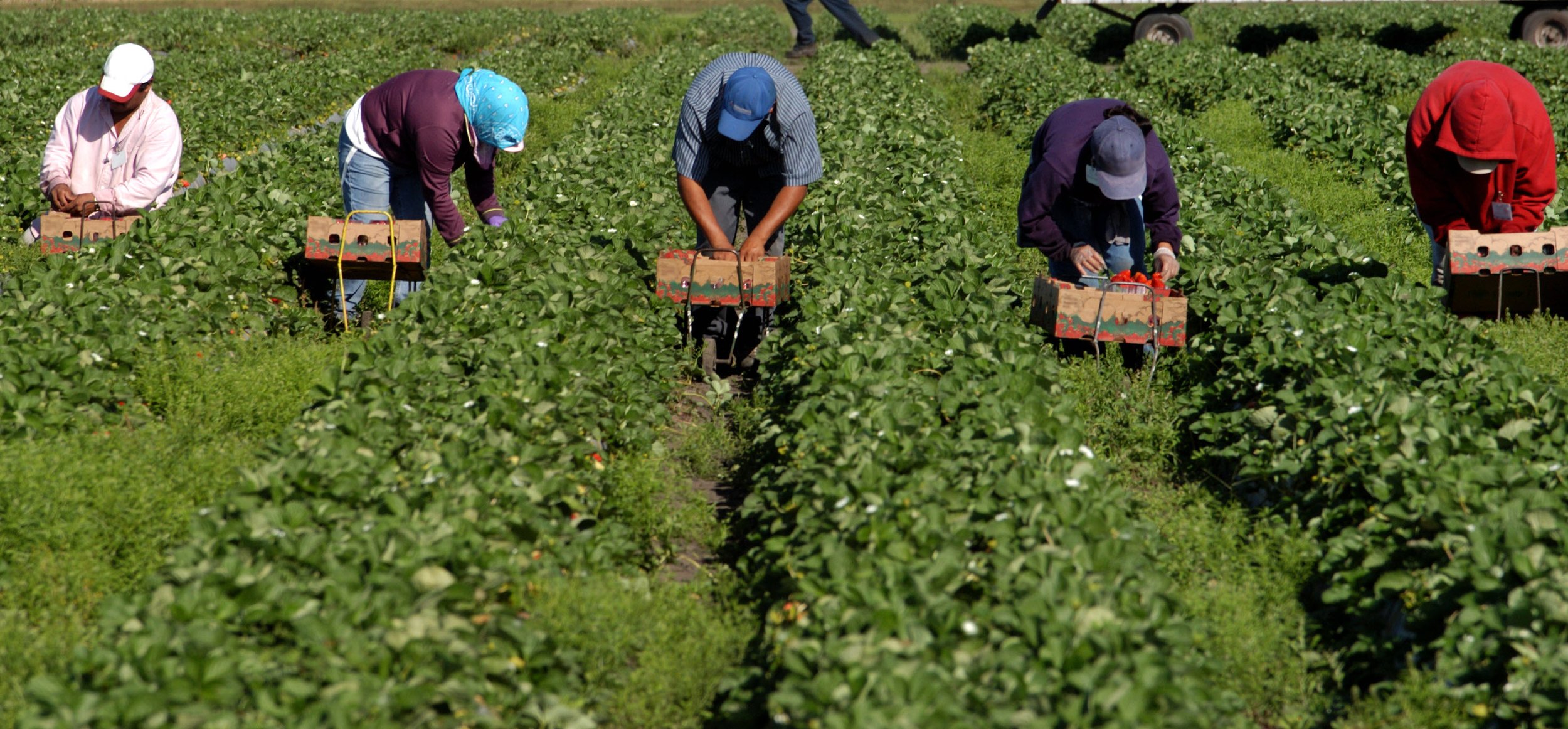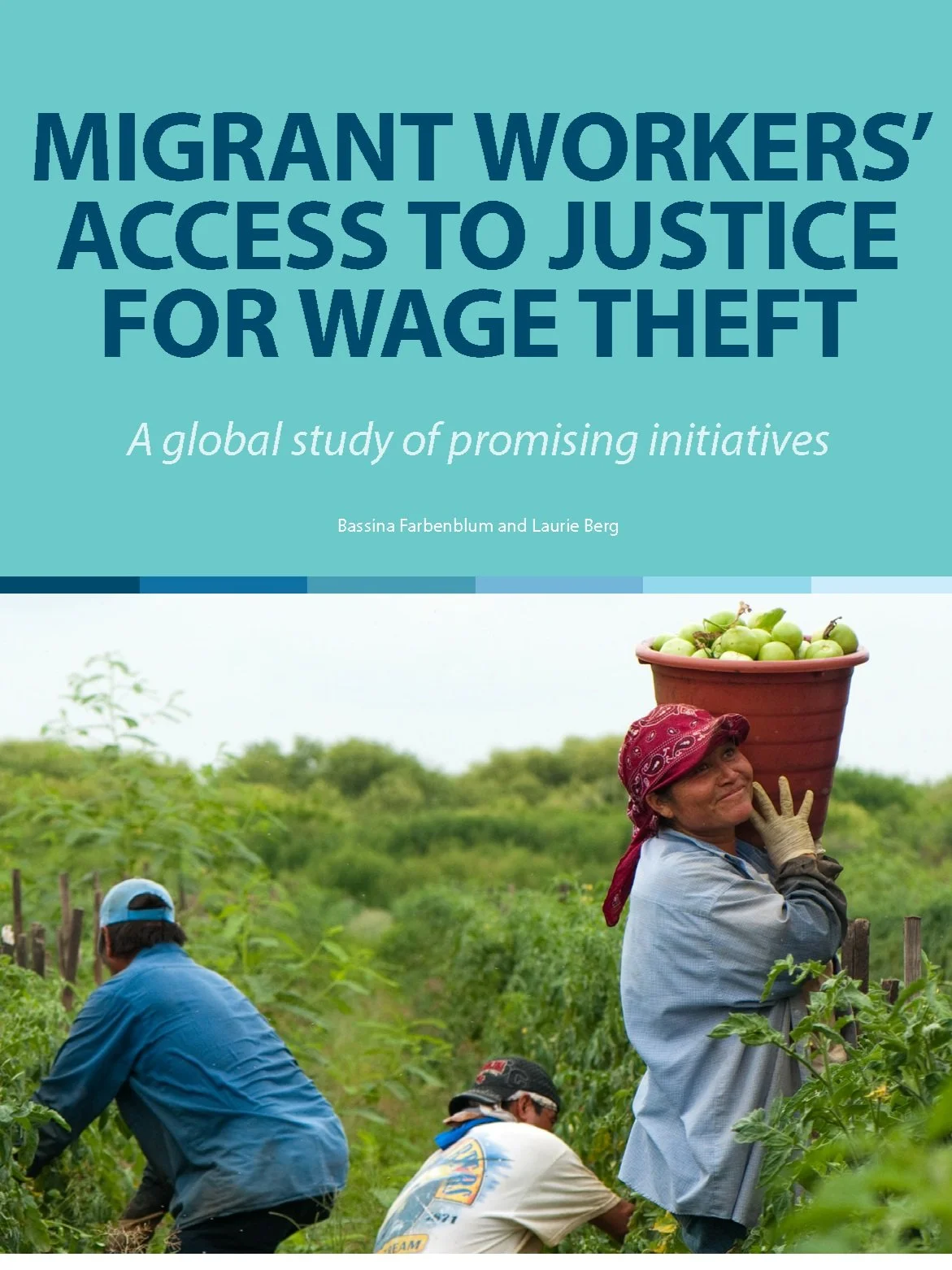
Migrant Justice Institute
Rights - Remedy - Responsibility

The Migrant Justice Institute undertakes strategic research and public engagement to achieve fair treatment, enforcement of rights and access to justice for migrant workers.
One in every 20 workers is a migrant - over 150 million people worldwide. Key industries and global supply chains in every region are structurally reliant on exploited migrant workers. Few businesses are ever held accountable because government oversight is weak and most migrant workers cannot enforce their rights. Many never obtain the wages they are owed.
Our rigorous research provides a transformative understanding of the legal and practical hurdles that prevent migrant workers accessing remedies for exploitation and forced labour, and identifies solutions. We chart pragmatic new pathways for decent work and responsible recruitment for migrant workers in Australia and globally, grounded in migrants’ experiences. We closely collaborate with migrant communities, civil society organisations and trade unions to amplify migrants’ voices and support migrant worker empowerment.
Key publications
Latest news
ABC News | Joe O’Brien
There are growing calls to fix the gaps in the government’s workers compensation scheme, including to extend the scheme to cover migrant workers. The Fair Entitlements Guarantee (FEG) is under review and MJI’s Bassina Farbenblum joined Joe O’Brien to disscuss this matter on the ABC News on Monday, 17 March 2025.
ABC News | Joshua Boscaini
Migrant exploitation experts call for increase to services accredited with certifying Workplace Justice Visas. Migrant Justice Institute co-executive director Laurie Berg said while the pilot was world-leading, the government needed to expand the list of partner organisations able to process claims.
HRD | Dexter Tilo
Case issues underlining migrant worker exploitation problem in Australia.
Data from the Migrant Justice Institute was quoted within article.
The Australian government has released its report on the review of the federal court system for claiming unpaid wages. It adopts several key reforms we proposed in last year’s All Work, No Pay report, which we submitted in draft to the review. These include a new ‘equal access costs’ model that will remove unfair legal costs for workers who successfully recover the wages they are owed.
The Law Report | Damien Carrick
Damien spoke to one of the first exploited migrant workers to obtain the new workplace justice visa.
He also interviewed our Co-Executive Director Laurie Berg about our All Work, No Pay report.
The conversation | Laurie Berg & Bassina Farbenblum
Tragically, a deep fear of immigration consequences means most unlawful employer conduct goes unreported.
On Wednesday, however, the government officially launched a two-year pilot of innovative visa reforms that could bring these workers out of the shadows.
Today, the Australian government introduced world-leading visa reforms based on our 2023 proposal, Breaking the Silence, which was endorsed by over 40 organisations. A new ‘Workplace Justice visa’ enables migrants worker to stay in Australia to enforce their labour rights; while expolited workers who have breached their visa will have protections from visa cancellation while they take action against their employer.
ABC | Gabriella Marchant and Sean Mantesso
A case brought to the Federal Court by 12 Pacific Islander female workers alleges the group was subject to persistent sexual harassment.
Laurie Berg, co-executive director of the Migrant Justice Institute, says there is a "cycle of impunity" when it comes to the abuse of migrant workers.
We need your help to gather data to drive the next five years of change. Please share the survey with your networks - anybody who's worked in Australia on a visa in the past 15 years can tell us about their experiences. Read all about the survey.
New laws taking effect today introduce powerful portability rights for employer-sponsored migrant workers – among the strongest in the world. Globally, employer-tied visas trap migrant workers in exploitative work and create a profound power imbalance between abusive employers and migrants who cannot complain or leave their job.
The Conversation | Laurie Berg & Bassina Farbenblum
New research has found that in reality, the federal “small claims” court process is virtually impossible to use without legal support.
SBS News
Australia's law system is seen as "hollow" by migrant workers, who rarely chase up underpayment from their employers, according to a new report.
The Guardian | Cait Kelly
Of the 4,000 migrant workers interviewed, over half were underpaid. Most knew this, but 9 in 10 did nothing. One went to court – but recovered none of their wages. It is not clear that wages claims are being systematically resolved via other legal forums or by the Fair Work Ombudsman, the report said.
The Conversation | Laurie Berg & Bassina Farbenblum
The widespread underpayment of migrant workers in Australia is now well-documented. The vast majority never recover the wages they are owed.
Wage theft is widespread – but very few migrant workers ever recover their wages.
Our report explains why the courts are failing migrant workers and outlines what the government can - and must - do to fix this problem.
THE PIE | Sophie Hogan
A survey examining the degree to which international students are exploited while working in Australia is launching another edition in July.
Today, the Australian parliament passed an important law implementing reforms for which we have been campaigning for years with our allies. The new law decriminalising undocumented workers; confirms that workplace protections apply to all workers regardless of their migration status; strengthens the accountability of employers; and takes the first step towards visa protections for exploited workers.
CHOICE | Andy Kollmorgen
“I think that we as a society have come to expect low prices when it comes to things like fruit and vegetables and takeaway shops on sort of the lower end of the restaurant and hospitality scale. But the business model often relies on underpayment of temporary visa holders."
ABC | Katri Uibu
“University of Technology Sydney academic Laurie Berg said: "I think employers routinely take advantage of that and it actually is a business model in some industries, where employers will seek out undocumented workers in order to avoid compliance with Australian labour law."
We strongly support the passage of this bill in its current form and are proud to be part of the Power to Prevent Coalition that has advocated for this reform. In early 2024 we will release All Work No Pay, a report which will strongly encourage the Government to introduce similar amendments in relation to small claims.

UTS Law Faculty and UNSW Faculty of Law & Justice are proud supporters of the Migrant Justice Institute.
MJI is a charity registered with ACNC. ABN 84654507758.





















![Submission: AHRC Amendment (Costs Protection) Bill 2023 [Provisions]](https://images.squarespace-cdn.com/content/v1/593f6d9fe4fcb5c458624206/1707271600441-NQYX0ZSUXPXYGJ5AXDA6/MJI+Submissions+%281%29.png)